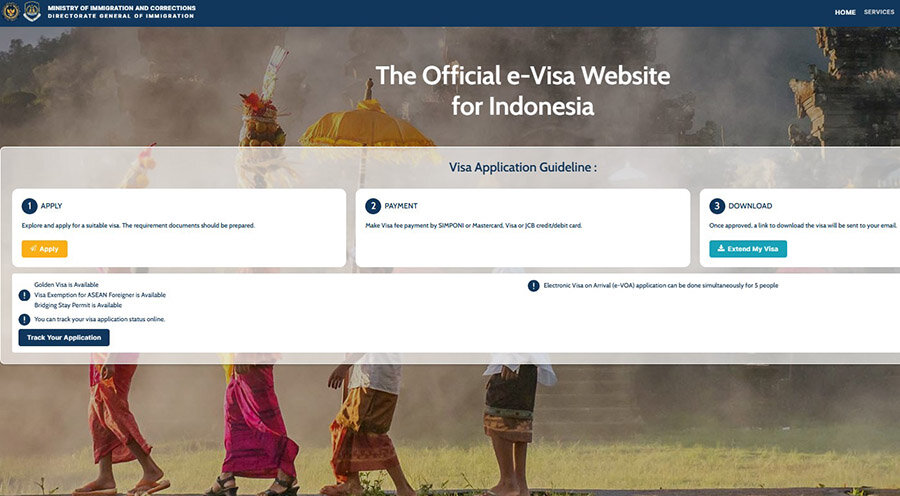read also
Indonesia Simplifies Visa Extension Process for Bali Tourists

Starting May 2025, foreign tourists in Bali can now extend their visas entirely online — eliminating the need for time-consuming visits to immigration offices. Indonesia’s Immigration Department announced this digital overhaul applies to both the standard Visa on Arrival (VoA) and its electronic version (eVoA).
According to The Bali Sun, the previous extension process could require up to three in-person visits, often seen as a hassle by travelers. Now, tourists can apply online either upon arrival at Bali’s international airport or in advance via eVisa's official website. Both visa types cost 500,000 IDR (approx. $32) and offer a 30-day stay.
Authorities recommend submitting eVoA applications at least 5 days prior to travel to avoid delays. While the visa is valid for 90 days from issuance, the actual stay begins upon entry. The eVoA also allows access to automatic immigration gates at Bali and Jakarta airports for a faster arrival process.
Indonesia’s immigration service also released a detailed guide to help travelers avoid common mistakes — such as inputting incorrect passport data or email addresses.
New Tourist Rules: From Mopeds to Social Media
While visa procedures are becoming more convenient, Bali is tightening its rules for foreign visitors. Since late March 2025, new regulations are in effect to protect the island’s cultural and ecological values. Tourists are urged to follow dress codes in sacred sites, avoid littering, and ditch single-use plastics, per the Love Bali platform.
Profanity, unauthorized work, and driving without an international permit are now strictly prohibited. Foreigners must also stay in licensed accommodations and book tours through accredited operators.
Bali has ramped up deportations: 417 foreigners were expelled in the first 9 months of 2024 for reasons ranging from visa overstay to cybercrime. In June, 103 Taiwanese nationals were deported over alleged cyberfraud operations.
Digital Surveillance and Tourist Tax
Since November 2024, Indonesian authorities have been actively monitoring foreign tourists’ online activity. Posts linked to illegal employment or disrespecting local norms can now result in deportation. Digital tracking helps enforce immigration rules and maintain public order.
Additionally, Bali now enforces a mandatory tourist tax of 150,000 IDR, payable via the Love Bali platform. Inspections began in mid-2024 after reports showed over 60% of tourists ignored the fee. While no fines are imposed yet, travelers must show a QR code as proof of payment.
Officials are also weighing a daily tax of up to $100 as part of a broader shift from mass tourism toward a premium, sustainable model that eases environmental stress.
Relocation & Investment Tightening
Authorities are scrutinizing not just tourists but also digital nomads and investors. A notorious “Russian village” in Bali was shut down for lacking permits, and its founder was detained over violations of building and investment laws. New bans target the construction of certain property types like entertainment venues and hotels.
In conclusion, Bali is becoming digitally efficient but structurally stricter. While tech-savvy services simplify entry, the island is now enforcing a robust compliance system. Visitors are strongly advised to respect local laws or risk fines, deportation, or even arrest.
Подсказки: Bali, tourism, Indonesia, visas, digital services, immigration, tourist tax, deportation, travel rules, 2025 policies








